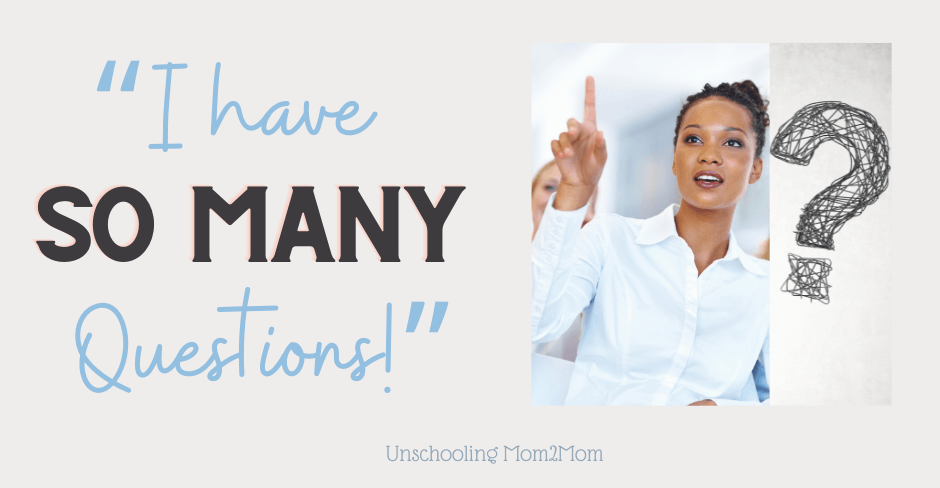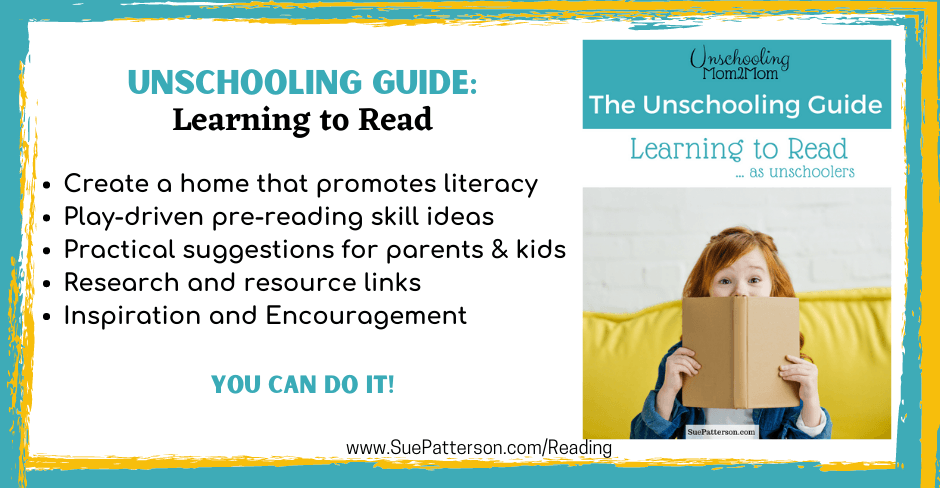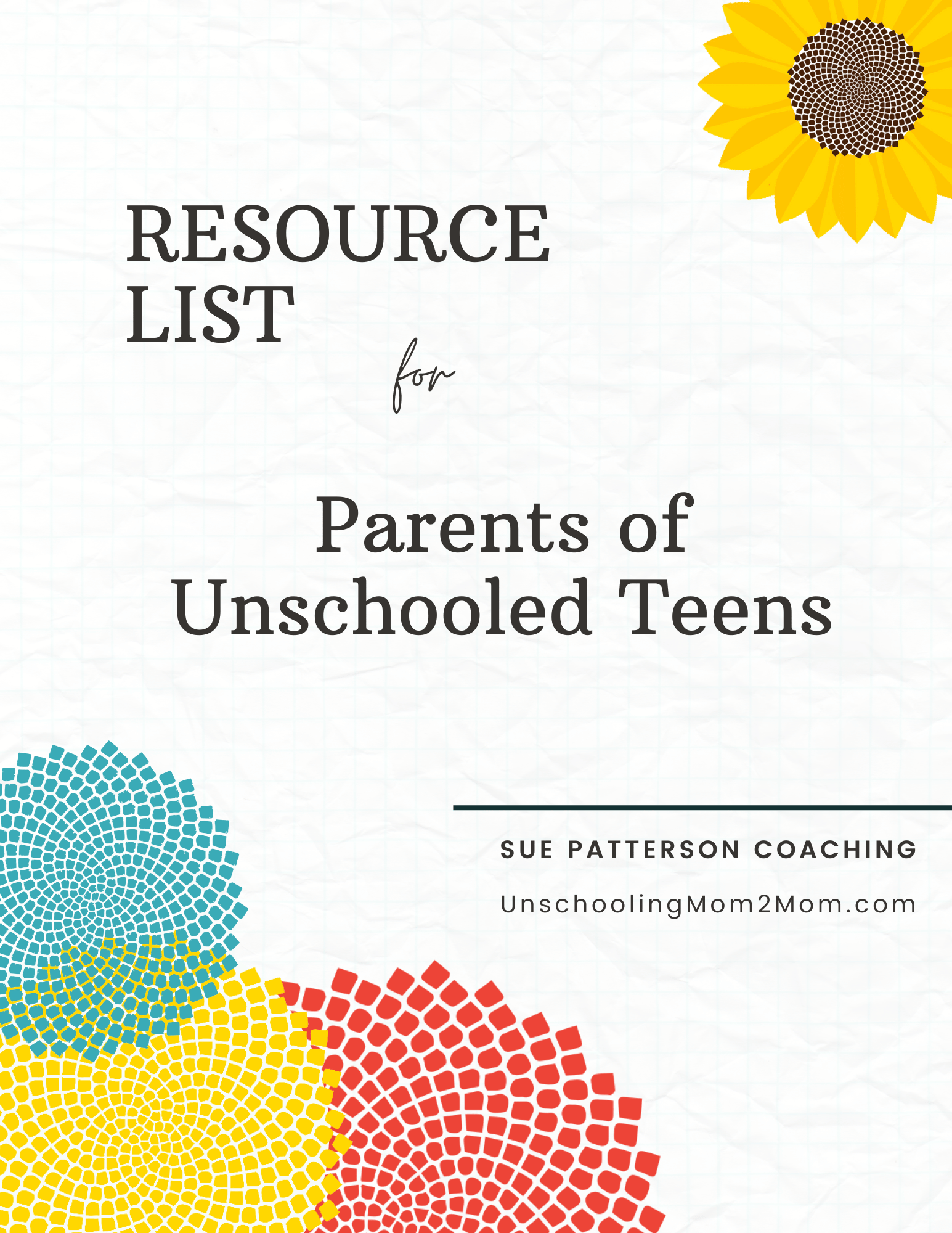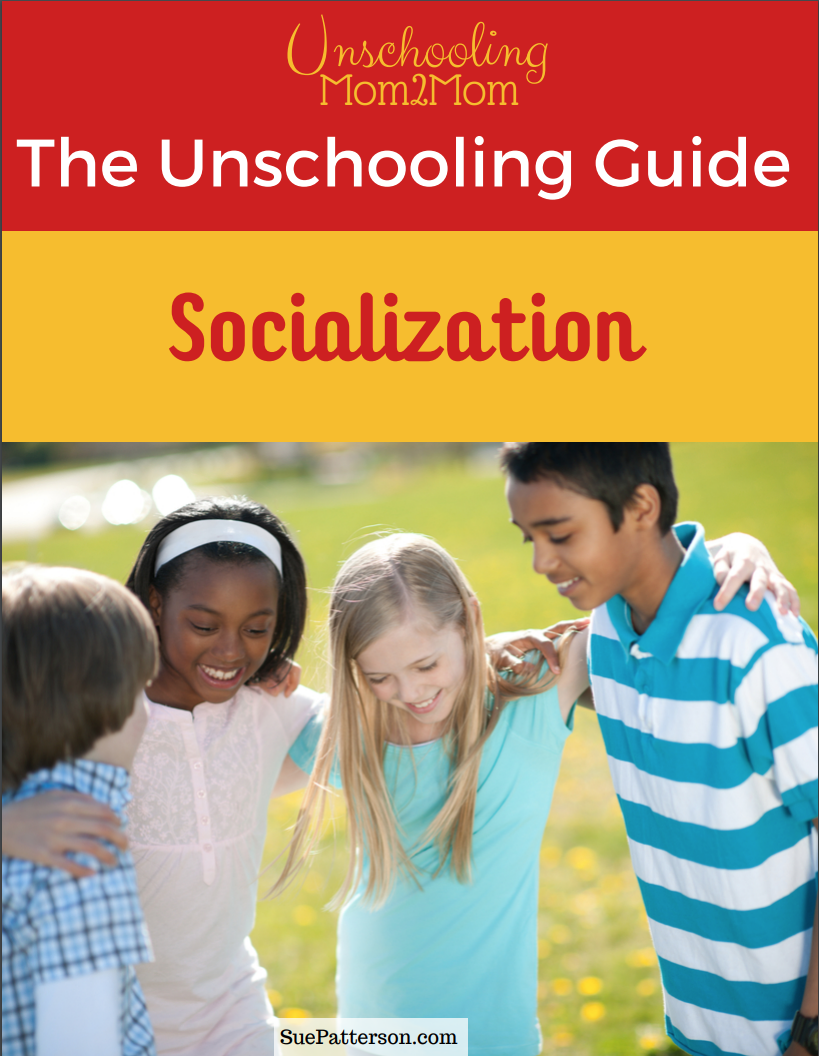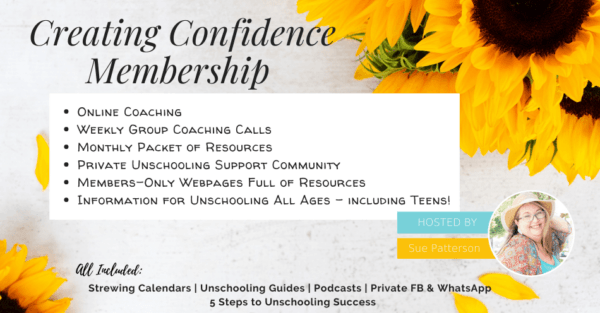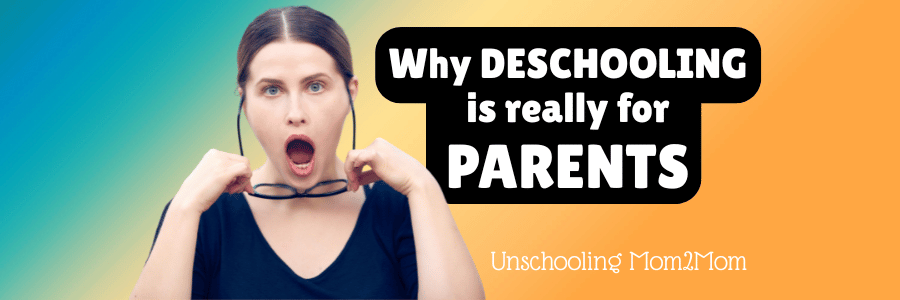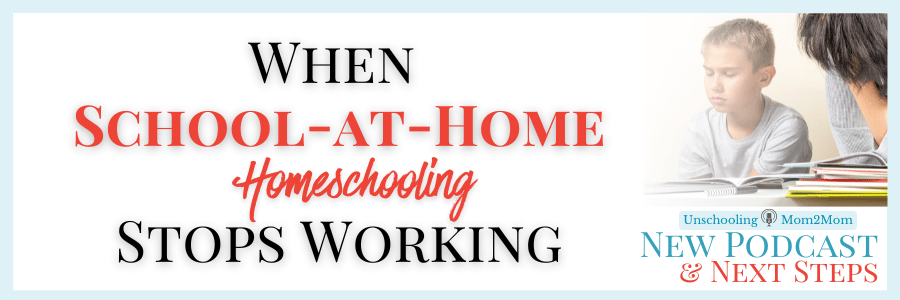So Many Unschooling Questions
Learning to Read
Question:
I'm worried about teaching reading. Don't kids need a curriculum to do this properly?
Answer:
You don't need curriculum for your child to learn to read. It's the technique used in elementary school because they're in a one-size-fits all mode. And as you begin to notice all the opportunities for building reading skills within your environment, you'll see that teaching your child - that top-down let-me-pour-this-in method isn't even necessary! Often it's counterproductive.
So many other factors allow our unschooled kids to have a TRULY customized learning experience!
Brains don't all learn to read at a certain time. Kids can be busy learning other things and the brain connections that need to happen to make it work might not be there yet. Just as all kids don't learn to walk or potty train at the same time, so it is with ready.
In school, kids are pushed to read whether they're ready or not because by about Fourth Grade, the teaching approach shifts from reading to them to requiring them to read for themselves. It's a system with a plan. But your family is not a system. And reading doesn't have to be The Holy Grail for all information to be transmitted to the child. While your child is learning "pre-reading" skills, they're still able to gather information through conversations, video, audio, and even trial-and-error. Reading in and of itself isn't the goal - learning about a topic is the goal! And that can be done in a variety of ways.
Children learn to read because they see a reason to do it. When developing those reading skills helps them achieve the goal that they want, it's a much easier process than forcing it because they're a particular age
Podcast (and transcript): Unschooling and Learning to Read?
This Guide WILL Help You!
If you're worried about how your child is going to learn how to read without curriculum,
this full color 25-page mini-magazine is what you're looking for.
- Learn about how to create a literate environment within your home.
- Conquer your own fears about how unschooling can work with reading
- Read the most cutting edge research about how kids actually learn how to read
- Discover SO MANY practical tips to make learning how to read a smooth process for your child
Inspiration | Tips | Guidance
Unschooling a Teen?
Question:
Can I really unschool my teenager? I worry that I can't find what I need to be successful. He was on Zoom calls for a while and that was awful. He doesn't really want to go back, but I don't really know what to do!
Answer:
To answer your first question - YES! Absolutely! It's never too late to choose another path. Parents usually worry that doors will close - college, career - and that's not true. Unschooled kids get into college all the time without doing the traditional route of "buckling down" with all the academics.
I have a lot of resources to help parents of teens. You can gather it all or just pace yourself, a little at a time. We often have a feeling of being under pressure because schools have convinced us that ALL the information needs to get poured into the teen before he graduates at 18.
Here's a quick list of what's wrong with their premise:
- Age 18 is an arbitrary number. Kids are ready for their young adult life whenever they're ready! Don't think of this as some clock ticking down.
- No finish line exists for learning. We're all learning every day - and that's what is happening with your kids too!
- The world changes all the time. It's irrational to think that we can get kids "prepared" for the twists and turns that the next couple decades are going to take. Didn't 2020 teach us that really clearly??
- People don't retain information that isn't relevant in their lives. How many things do you actually remember from your own 12 years of schooling? It's not because you "didn't pay attention" or have some memory problem. It's because our brains are not designed to keep data that has no context. The school approach of pushing all the data because "SOMEDAY you might need it" - that's the flawed thinking. It doesn't work that way.
- Parents who step away from school can help their kids become more confident and identify their preferences and interests. You'll have the TIME to do this without jumping through all the hoops schools require.
Here are a couple of resources that can help you, depending on the support or information you need:
- Homeschooled Teens book - I talked to 75 young people who didn't go to school. They answered all the typical questions that people have when they're thinking about this unconventional approach.
- Creating Confidence Membership - we have quite a few parents of teens in the coaching group. Membership includes access to so many resources and materials in a private members-only area - past workshops about transcripts and parenting teens, my ebooks about teens, various PDFs to help you on your journey. Plus two group coaching calls every month specifically focused on issues parents face unschooling their teenagers.
- Unschooling Teens - a webpage here at UM2M, full of articles and videos that will reassure you!
My Resource List for You!
Sometimes we feel a little panicky about unschooling teens
and we want to gather resources to help us feel a little steadier.
That's what I've collected for you!
This handy PDF will give you a list of links for parents unschooling teens.
What About Socialization?
Question:
After a year of lockdown, I'm worried that my kids aren't getting enough time with other children. I know the typical question is "What about Socialization?" But what about when it's really NOT enough?
Answer:
It's been a tough year for all of us. (Understatement of the year!)
And maybe the kids ARE wishing they had more time with other kids. How can you make that happen? Some of us are thinking that the only way for kids to "be socialized" is to enroll them in classes. Yet, that's possibly the WORST form of socializing - especially since they're often reminded "You're not here to socialize!"
Think about the activities they enjoy. Would some be a little more fun with other kids? Who could you invite? It doesn't have to be another unschooler - just a kid who shares the same interest. That's how we develop friendships... shared experiences, shared preferences, etc. Lasting friendships usually don't come from desk proximity or because the first letter of our last names are the same.
Unschooled kids get the opportunity to connect with other kids based on their interests and their own temperament. Kids who love to do certain activities within a group, get to do that - you may have to set it up or find resources locally. And kids who don't like a madhouse of other children are allowed to have 1-2 friends - because that's all they want. Introverted kids are often pushed into situations that really don't fit them. It won't change them into being more comfortable with bigger groups (as popular opinion seems to believe) but it makes them think there's something wrong with them. And there isn't. The world needs extroverts and introverts - and all the rest of us in between!
Some kids wake up saying, "Who are we seeing today??" while others are happy with a couple of contacts a month. Neither is right or wrong. Our role in all of this is to individualize the experience to fit the personality of the child. And even that may change over time. Parents sometimes need to do a little work to separate their own childhood experiences and "issues" about friendships, and not assume that it's the same for your child. They have a different path, different ideas, and certainly a different environment than you did!
Is this Socialization Question Bothering You?
This full-color 25-page guide will address a variety of topics that weave in and out of this question:
- Examining this concept of socialization
- How to help your child develop social skills
- What about community?
- Social benefits of Unschooling
- "Susie, You're Not Here to Socialize!" (yes, I mean me!)
- Making Friends
- Journaling about our own experiences
- And so much more!
From Daniela:
"I was having such a hard time with the socialization issue... feeling so anxious. Then I read the Unschooling Guide about Socialization. A lot of my fears dissipated. And the journaling helped the most! I was able to uncover what was making me anxious about it, in our particular case. I still have a lot of deschooling to do, but I’m feeling so much more at ease now!"
Transitioning from Little Kid to Big Kid
Question
We've been unschooling for about 6 years at this point, and my kids are now suddenly NOT babies anymore at 10, 8, 6, and 4. This seems to have come as a great shock to me after years of nursing and changing diapers and giving snacks constantly.
Now I feel like my kids are fairly self-sufficient except for the odd conflict where they might need some input from me, and I'm feeling like I suddenly just have SO much time in my days. So I guess I'm wondering:
- Should I be "inserting" myself into their days more? Offering more things? Planning more outings now that our Covid restrictions are lifting? And/or
- What do I do with MYSELF? I do have a home business, and there's still housework and things to do, but I find a lot times I'm just sitting around, waiting to be summoned into duty. It's definitely a transition from the busy baby years.
Answer
It's a shift, for sure! The answer will really depend on what they want. And with 4, someone will always want the opposite. But they'll have to compromise, because that's how families work. Or that's what happened in mine - maybe someone else has a better plan!
Here's what came to mind as i was reading your question:
- Do more of your own things in the room where they are. That may mean creating a space for all the technology, etc. This way you're available. Lots of times kids want something, but not badly enough to overcome the inertia. If you're close by, it's an easy, "Hey mom..."
- I'd mention to them that you'd like to get out into the community now that you CAN. See what they think for how often or to do what?
- If they're a little stumped by what to do, I have a Brainstorming Guide that a lot of long-time unschoolers liked a lot.
Here's the link: Brainstorm Time! - Big difference between 10 and 4 though. And even with 6. So making sure the 10 gets a lot of closeby independence, and the 4 & 6 year olds get a lot of time with you. It might be a shift if you're used to all-inclusive activities. But this may be a place to pivot and give the 10 (or maybe the 8 year old too) the option to Opt Out.
Or play things the 4 & 6 year old like, within earshot of the other two... they may get to a boring spot and join you all. - And some of the issue might be that you're used to the immersive parenting of little ones. You've gotten out of the habit of figuring out what you might like to do for YOUR OWN FUN. Remember, you're going to be interrupted a lot. Just because they seem more independent than they were, it's not a linear path for this. They'll circle back and need you for all sorts of things. Still, finding your own interests might be your next step.
Do You Need More Unschooling Mama Support?
Sometimes we're puttering around and all is well.
And other times, we realize that we could use some other like-minded parents to chat with occasionally. That's what I've created with our Creating Confidence Membership.
Many of us are so much happier when we have others to touch base with and the membership offers several ways to do this.
- Multiple Zoom Calls every month!
- A private WhatsApp channel for those who prefer texting
- A private Facebook group for those who prefer social media
It breaks down to about $10 each week with no longtime commitment. Some people hop in and get their cup filled with just a couple of months - and others love it all so much they've stayed for years!
Totally up to you!

